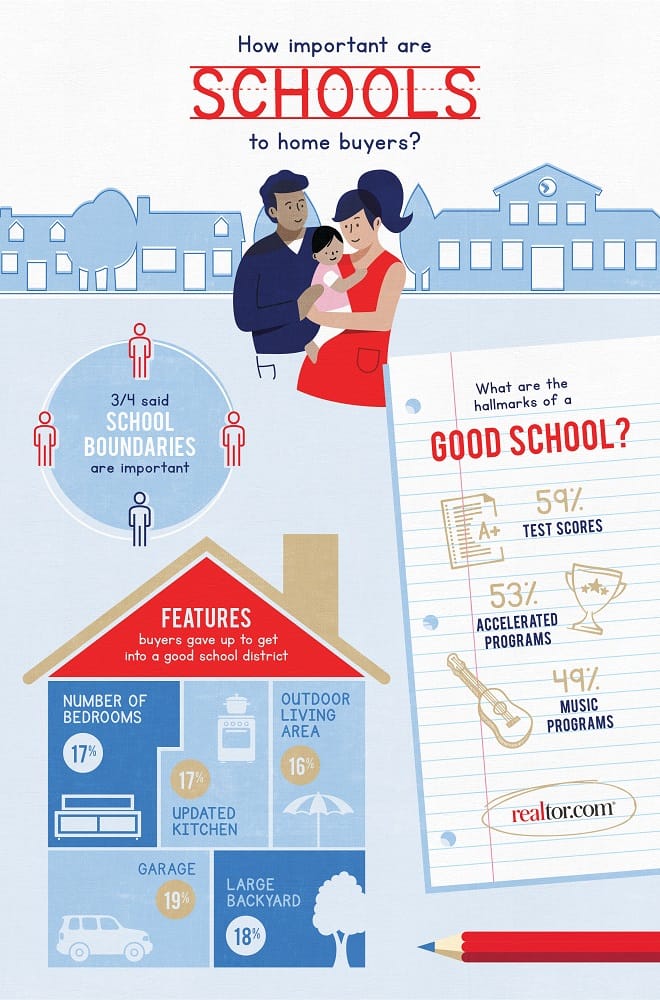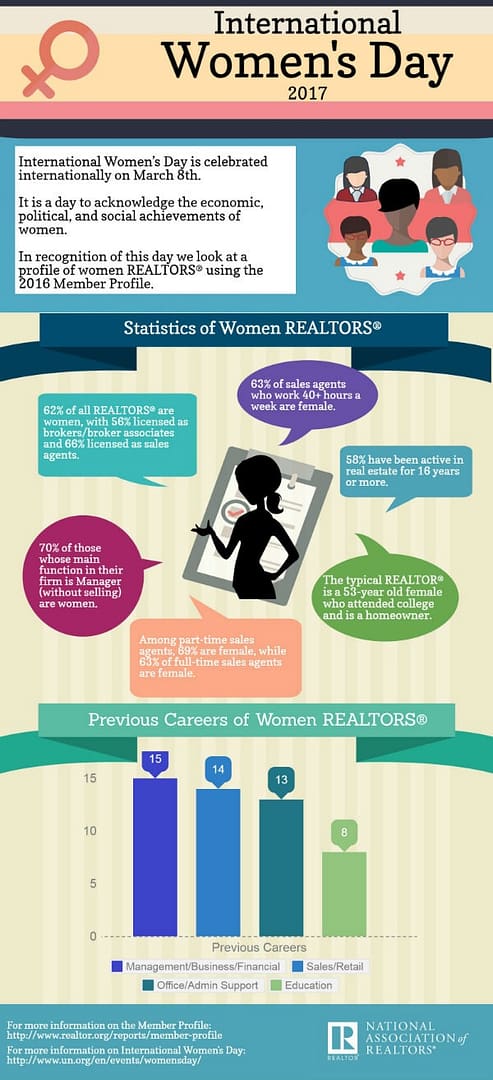Survey of 2,000+ employed U.S. adults reveals that 34 percent of Americans working in female-dominated industries, such as real estate, agree there’s a “glass ceiling” in their industry, making it more difficult for women to reach executive or senior-level positions
MADISON, N.J., Feb. 5, 2019 (PRNewswire) Industries such as real estate, healthcare and education are female-dominated*, however, at the executive level, there’s a stark lack of women. A new survey from Coldwell Banker Real Estate LLC, conducted online by The Harris Poll, revealed that 34 percent of Americans working in female-dominated industries agree that women in their industry face a “glass ceiling,” making it more difficult for them to reach executive or senior-level positions.

The Coldwell Banker Examining Women and Leadership Survey compares the leadership and professional ambitions of men and women who work in female-dominated industries, as determined by data from the U.S. Bureau of Labor Statistics. The survey found that in female-dominated industries, men are 75 percent more likely than women to hold an executive-level position. With this survey the Coldwell Banker brand aims to probe the causes of this gender leadership gap and then work to demolish the glass ceiling. One way the brand has already begun to address the issue is through its Women in Leadership Initiative, including a blog series that kicked off in 2018 with a post on narrowing the female leadership gap in real estate; the full series can be found here.
QUOTE:
“Women in real estate face an upward mobility challenge, and it’s our responsibility to help correct the gender leadership gap,” says Zoe Horneck, vice president of product marketing and communications, Coldwell Banker. “Our brand is supporting current and aspiring women leaders by providing formal management training, online courses and in-person networking opportunities at events including our annual Leadership Summit and Gen Blue® conference. Our Women in Leadership Series, which started as a series of monthly calls and blog posts and will soon add a podcast, allows female trailblazers to share their success stories and empower others to do the same. This May will be Coldwell Banker Women in Leadership Month, celebrating the tremendous work of women in real estate and encouraging more women to seek ownership and leadership opportunities. Our work has only just begun and we’re committed to ensuring that women across our network can envision a path to leadership and are given a variety of opportunities to exercise their leadership skills.”
Nearly two-thirds (64 percent) of working adults in the U.S. agree that working for a company that has female representation at the executive level is important to them, yet a full 41 percent agree that women have to work harder than men to earn an executive level position at their company.
Looking at the real estate industry specifically, the National Association of Realtors (NAR) 2018 Member Profile Report shows women account for 63 percent of all REALTORS®, yet more men lead real estate companies as a broker-owner** (52 percent) or a selling manager (57 percent).
Open dialogue about women as leaders in the workplace, mentorship and training, combined with opportunities to grow and lead, are critical to empowering women in all industries. However, among all employed U.S. adults, 40 percent say their company does not offer formal leadership training programs or sessions.
QUOTE:
“As the owner of the largest female-operated Coldwell Banker® affiliate, I’m motivated to inspire the women in my community to reach their professional goals,” says Lori Arnold, broker-owner, Coldwell Banker Apex in Dallas-Fort Worth, Texas. “Women succeed at our brokerage because of the continuous support from all members of our team and the initiatives of the Coldwell Banker brand to empower its agents. To me, being a female broker-owner means thinking outside of my comfort zone and saying YES to every opportunity for growth.”
ADDITIONAL FINDINGS:
Among U.S. adults working in female-dominated industries, the survey found:
- Men are 20 percent more likely than women to state that they have asked a supervisor/boss directly for a raise or promotion.
- Forty-two percent of women and 37 percent of men say they would be hesitant to ask for a raise or promotion even if they met most or all of the qualifications.
- Men are 32% more likely than women to say that they have ambitions of one day holding an executive-level position in the industry they currently work in
CLICK TO TWEET: “Glass ceiling” exists even in female-dominated industries, such as real estate, according to 34% of American workers in those industries in recent @Coldwell Banker survey. https://bit.ly/2MMCxAg
For the full results of the Coldwell Banker Real Estate Women and Leadership Survey, please visit here.
If you would like to know more about what it means to be a Coldwell Banker affiliated agent, head to https://www.cbwomen.com and explore the possibilities of moving your real estate business to Coldwell Banker.
Methodology
This survey was conducted online within the United States by Harris Poll on behalf of Coldwell Banker Real Estate from December 4-7, 2018 among 2,252 employed U.S. adults ages 18 and older, among whom 861 work in female-dominated industries as defined by Coldwell Banker. This online survey is not based on a probability sample and therefore no estimate of theoretical sampling error can be calculated. For complete survey methodology, including weighting variables and sample sizes, please contact Athena Snow (Athena.Snow@realogy.com) or Rachel Braude(RBraude@gscommunications.com).
About Coldwell Banker Real Estate LLC
Powered by its network of over 92,000 affiliated sales professionals in 3,000 offices across 47 countries and territories, the Coldwell Banker® organization is a leading provider of full-service residential and commercial real estate brokerage services. The Coldwell Banker brand prides itself on its history of expertise, honesty and an empowering culture of excellence since its beginnings in 1906. Coldwell Banker Real Estate is committed to providing its network of sales professionals with the tools and insights needed to excel in today’s marketplace and is known for its bold leadership and dedication to driving the industry forward with big data and smart home expertise. Coldwell Banker Real Estate was the first real estate brand to harness the power of big data; the CBx Technology Suite uses predictive analytics and machine learning to analyze markets, target buyers and sellers and provide agents with a simple platform to create unique and effective marketing plans for each listing. The brand was named among the 2018 Women’s Choice Award®Most Recommended brands for customer experience and overall quality. Blue is bold and the integrity and values of Coldwell Banker give the Gen Blue network an unbeatable edge. Coldwell Banker Real Estate LLC fully supports the principles of the Fair Housing Act and the Equal Opportunity Act. Each office is independently owned and operated. To join Coldwell Banker Real Estate and unlock the possibilities of Gen Blue®, please visit www.coldwellbanker.com/join.
| Media Inquiries: | |
| Athena Snow | Rachel Braude |
| Coldwell Banker Real Estate LLC | G&S for Coldwell Banker Real Estate LLC |
| 973.407.5590 | 917.595.3061 |
| Athena.Snow@coldwellbanker.com | RBraude@gscommunications.com |
*Female-dominated and male-dominated industries identified based on the U.S. Bureau of Labor Statistics Current Population Survey 2016 annual averages of employed people by detailed occupation.
**NAR defines a broker as a real estate licensee (including brokers and sales associates) acting as an agent or in a legally recognized non-agency capacity.



